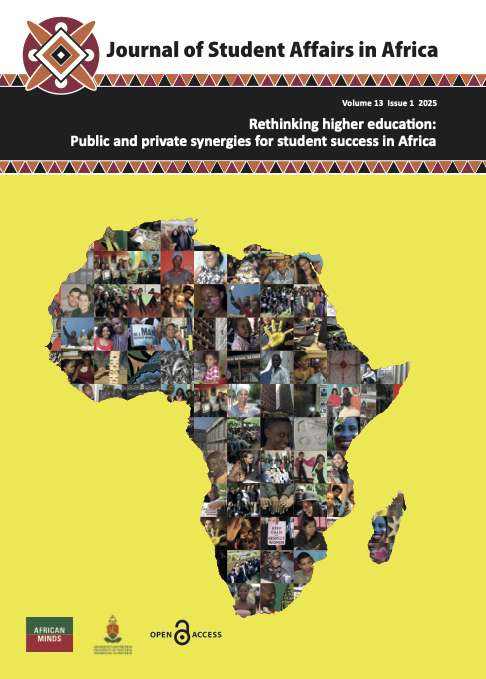Gateway to Success: An integrated academic and student life orientation programme for new first-year students
DOI:
https://doi.org/10.24085/jsaa.v13i1.5380Keywords:
first-year experience, holistic support, student success, integrated student supportAbstract
The transition from high school to university is widely recognized as challenging for many students, but was especially challenging for students who experienced almost two years of disrupted schooling during the COVID-19 pandemic. Pre-pandemic, the University of the Witwatersrand (Wits) ran a one-week first year orientation programme. In mid-2021, as the severity of the pandemic was easing, it was clear that new students would need more than one week to adjust not just to university life but also to in-person interactions. As Academic Affairs and Student Affairs leaders we therefore undertook to design and implement an extended, integrated academic and student life orientation programme that would be compulsory for all 6500 new first year students in 2022 called Gateway to Success (GTS). Rapidly changing circumstances meant we had only four months to do this. In this paper we discuss the design of GTS and explain how we could plan it so quickly by utilizing a networking approach combined with a modified agile project management approach we had been developing since 2019. We then provide student evaluation results from 2022, and discuss how GTS was modified in 2023 when pandemic-related restrictions were lifted. We conclude with a discussion of how GTS has been embedded in university structures and processes and contributes to our institutional commitment to student success.
Downloads
Published
Issue
Section
License
Copyright (c) 2025 Diane Grayson; Elisabeth Brenner, Jerome September (Author)

This work is licensed under a Creative Commons Attribution-NonCommercial-ShareAlike 4.0 International License.
Authors who publish with this journal agree to the following terms:
Authors retain copyright and grant the journal right of first publication with the work simultaneously licensed under the Creative Commons Attribution Share-alike 4.0 International License that allows others to share the work with an acknowledgement of the work's authorship and initial publication in this journal.
Authors are able to enter into separate, additional contractual arrangements for the non-exclusive distribution of the journal's published version of the work (e.g., post it to an institutional repository or publish it in a book), with an acknowledgement of its initial publication in this journal.
Authors are permitted and encouraged to post their work online (e.g., in institutional repositories or on their website) prior to and during the submission process, as it can lead to productive exchanges, as well as earlier and greater citation of published work (See: The Effect of Open Access).


